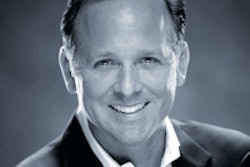
There's no question of the impact and importance of solid training on job performance and success, regardless of your profession. From fast food and retail to information technology and professional sports, proper training sets parameters and expectations for the job and provides the necessary tools to succeed.
 Jay Geier is the president and founder of the Scheduling Institute.
Jay Geier is the president and founder of the Scheduling Institute.If you are taking the time to read this column, chances are, you already realize the value of training as it pertains to your team. You realize that growing your practice is an intentional process and understand that team training is a high-return investment that leads to a significant increase in results.
At some point or another, you've probably invested in a training day or two. And whether or not you've been consistent about training your team, I'm sure you realize there's always room for growth and improvement.
But what if I told you that significant growth and improvement can be vastly multiplied by recognizing and addressing the one component often missing in team training: you. In fact, the success of your training investment depends on your personal engagement. You read that right: If you are low-energy, passive-aggressive, sour, unclear about your expectations, or resistant to change, you are sabotaging the training and handicapping the results.
Looking for guidance
Why? Because your team will look to you, their leader, for guidance, and if you aren't "in it to win it," how do you expect your team to be? You need to consider this key fact: Your team will never exceed your level of engagement.
In fact, if you are expecting them to bring their A-game into work every day and you're only giving 50%, you aren't only deluding yourself, you're critically damaging your practice's success potential.
To explain my point, I'd like to introduce you to a tool I've created to measure engagement -- called the engagement scale. It's a 10-point scale, with 1 being resistant and unknowledgeable, and 10 being extremely passionate and capable of teaching the topic to others. OK, so now take a second and do some self-reflection.
Where do you regularly fall on the engagement scale? Where do you think your staff would say you fall? Be honest. Let's just say, for example, that you're coming into the office at a 5 or 6 out of 10. A 5 is pretty apathetic. Essentially, you're just "showing up" to work every day. So if you're a 5, I can tell you without a doubt that your team is likely a 2 or 3. The truth is, if you want your team to be at a level 7 or 8 out of 10, you're going to have to be a consistent 9 or 10. You need to be passionate, purposeful, and motivated.
“If you want to truly optimize your results and see dramatic growth in your practice, you've got to take the weight of responsibility on your shoulders.”
So are you where you need to be? If not, now is your chance make some changes. This can be your turning point. If you want to truly optimize your results and see dramatic growth in your practice, you've got to take the weight of responsibility on your shoulders and say, "It's not them. It's me. I'm in control of what happens to this practice."
Let's start with your vision. Where do you want the practice to be in the next three, five, or 10 years? Is it clear to you? If so, does your team know this vision, and are they fully on board and working to make it happen?
If your team understands that there's a bigger plan and sees your level of commitment, they will find the trainings to be more meaningful -- rather than the other perception that you are just trying to "fix" them. They will be more willing to receive the information that they learn and find new and innovative ways to increase their results. They will personally invest in the growth of your practice.
Do you know why? Because passion is contagious. Charismatic leaders are contagious. A level 10 on the engagement scale -- that's contagious! So you need to bring the energy and get your team fired up.
Don't wait another year to make the change. Be intentional about stepping up your engagement level this week. Be conscious of your energy and focus. Let your attitude set an example for your entire team. Clearly communicate your expectations to them and provide them with the necessary resources to reach those expectations. Last, follow up on their progress and keep a system of accountability in place.
Now, put some trainings on your schedule with this in mind. I guarantee that once you integrate the power of team trainings with your own full potential as a leader, you will see a tremendous increase in results across the board.
Jay Geier is the president and founder of the Scheduling Institute.
The comments and observations expressed herein do not necessarily reflect the opinions of DrBicuspid.com, nor should they be construed as an endorsement or admonishment of any particular idea, vendor, or organization.


















